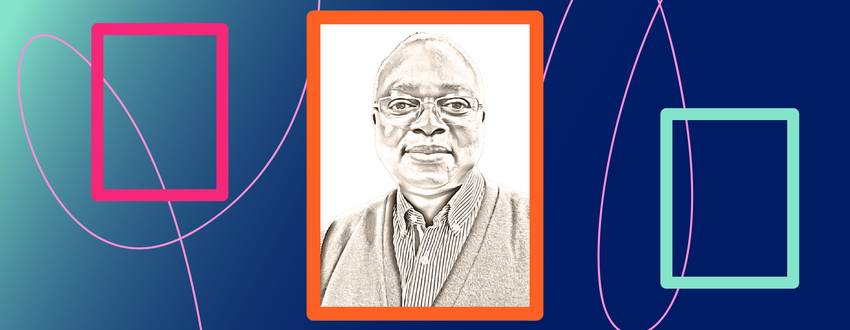News
Faces of Domuni: Interview with Benjamin Kabongo Ngeleka (PhD)

16 september 2024
Benjamin Kabongo, the Journey of a Student-Researcher at Domuni Universitas
Faces of Domuni kicks off its series with an inspiring encounter: that of Benjamin Kabongo Ngeleka, a student-researcher nearing the completion of his PhD. Off the beaten path, he embodies the spirit of Domuni Universitas, an online higher education institution that allows passionate researchers to combine professional life, personal commitments, and the pursuit of knowledge.
A unique path: research in freedom
Benjamin Kabongo is one of those curious and determined minds. In his third year of a PhD at Domuni, he is preparing to defend his work before an international jury. His choice to continue his studies at Domuni came naturally:
"Domuni allows me to combine my pastoral commitment with the desire to pursue continuous and degree-based education," he says.
This flexibility, the ability to organize his time, and to progress at his own pace are at the heart of what makes Domuni Universitas so strong.
Discipline as the key to success
Studying online requires rigorous discipline. Benjamin emphasizes the importance of this daily "asceticism": each day, he dedicates a minimum of two hours to his studies, between reading the courses and various books. During the week, he sets aside an entire day for intensive research, often in libraries. It is this regularity and perseverance that enables him to move forward in his research work.
The tools of distance research
While online research might seem like an obstacle, Benjamin proves otherwise. He mainly uses platforms such as Cairn and Hall Archives-Ouvertes for his academic research. The digitization of research not only saves him time but also allows him to customize his work pace. However, he highlights the importance of interactions, occasionally regretting the lack of more frequent oral exchanges with his thesis director and colleagues.
Quality support, without borders
At Domuni, distance does not mean isolation. Benjamin speaks highly of the attentive guidance he receives from his thesis director and members of the academic staff.
"The online thesis format allows Domuni Universitas to harness expertise through an international network," he explains.
This supervision, both rigorous and supportive, has been a key element in his journey, allowing him to make progress and deepen his research.
Creating connections, enriching dialogue
Rather than being held back by potential isolation, Benjamin has turned this situation into an opportunity to expand his discussion network. He initiated conversations with those around him and took advantage of his pastoral commitments to share his ideas and test his hypotheses. These constant interactions have enriched his research, feeding his reflections and helping him refine his work.
Looking to the future: a formative experience
Benjamin feels ready for the future, convinced that this online experience has equipped him with the necessary skills for an academic or professional career. He highly recommends this path to other students, emphasizing the flexibility and personalized work pace that Domuni Universitas offers.
A mind without borders, a freedom to learn
Through the journey of Benjamin Kabongo, the true spirit of Domuni Universitas comes to life. A place without walls or borders, where each student is free to chart their own path, guided by academic rigor and a passion for knowledge. Here, every thesis is a human adventure, a quest for knowledge pursued with determination and autonomy. Benjamin is supported by Professor Ellul, OP, and Professor Jajé, OP, both experts and supportive guides on this intellectual journey. In the end, this is perhaps the true strength of Domuni: offering everyone the opportunity to go further, to grow in knowledge, wherever they may be.

